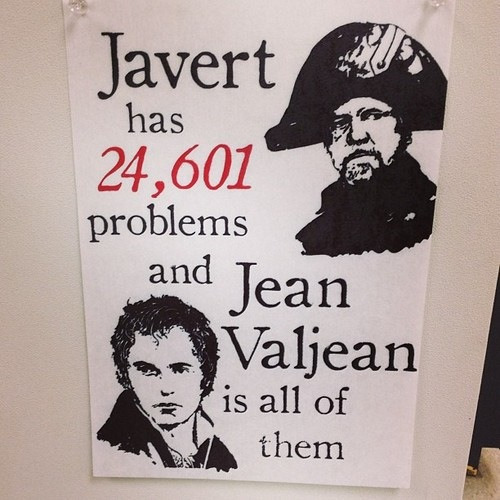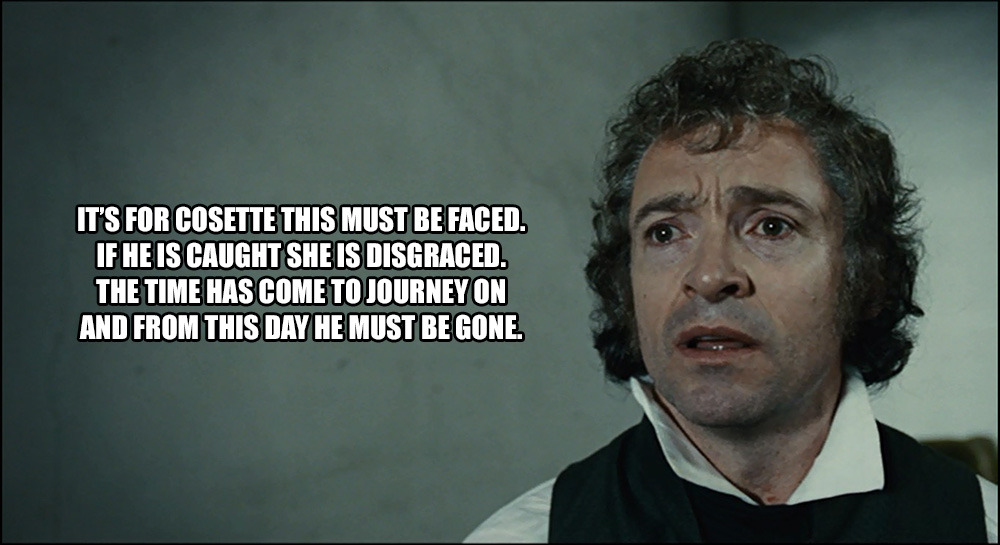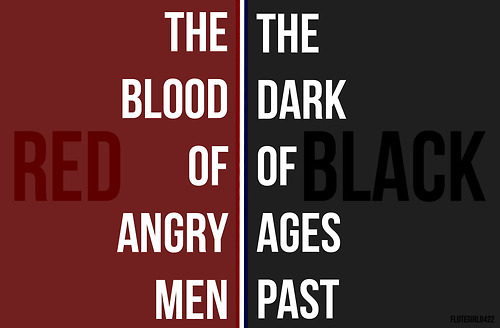France, in the early 1800's, can be related quite accurately to Les Miserables! (Even though the time periods are not quite parallel). After Napoleon was banished to a far away island, Louis XVIII took over reinstating family monarchy. Louis was much like Marius. Louis was the most liberal ruler just as Marius had been. While Marius was pressured to join the barricade rebels instead of going after Cossette (so sad!), Louis was being pressured to create the Constitutional Charter in 1814 (also not a good thing).


Because of Marius's and Louis's doubts of position, Marius was temporarily disliked by his friends and almost died and Louis was unstable with his personal opinions on ruling and eventually fled France out of cowardice! However, they both did more for the people than for themselves.
Then comes Charles X, also portrayed as Javert! What a pleasant fellow...
Like Javert, Charles was completely conservative. While Javert continually chased after Val Jean for "justice" (actually punishment), Charles took away the rights of all the revolutionaries. Eventually though, both people could not handle the heat of the rebellion. Javert killed himself to escape Val Jean and Charles fled once the people revolted. Outwardly they were harsh, but on the inside they were cowards.
After Charles's reign comes Louis Phillipe! Also known as Valjean. Val Jean did not thoroughly participate in the barricade revolt, but obviously also didn't side with Javert. Likewise, Louis Phillipe is the in between conservative and radical. Val Jean eventually faced his fears of Javert. Louis Phillipe faced his fears as well by not fleeing.
He may have been better off fleeing though, for the Revolution of 1848 had started!
The Revolution involved France, Austria, and Prussia. It started in France but then the ideas of revolution spread to Austria and Prussia. Just as Marius and his worker/poor crew fought for their rights, France, Austria, and Prussia all started with middle class/worker revolts for rights. They all had ideas for freedom and liberty.
Their dreams may not have changed the world but they did change the form of government in each country.
- France: Monarchy to republic
- Austria: Monarchy to representative government
- Prussia: Monarchy to constitutional monarchy
However, everything went completely haywire. Every country began another revolution inside the main fight for liberation! (Luckily nothing happened like this is Les Mis...the movie didn't need to be any more heart wrenched)
- France was made up of the moderate republicans and the radical republicans. At first they were in agreement but once voting rights were passed, the moderates betrayed them. It was no longer a war of freedom but a war between the classes and their desires.
- Austria had a similar dilemma. People were in unison, but then the conservative aristocrats revolted against the workers and urban poor.
- Prussia became involved in a war between Denmark over land control. It was a war amidst a revolt.
It was chaotic, it was violent, it was revolution.
Last but not least, all the countries failed in their attempts for liberty and new government just as Marius's crew all died at the barricades.
- France: Louis Napoleon took control after government, army, and peasantry crushed the revolt.
- Austria: Archduchess Sophia and aristocrats squelched the revolt. Francis Joseph became emperor.
- Prussia: Frederick William asserted his authority, shut down the Constituent Assembly, and created a conservative constitution (not what people wanted).
All in all, the rulers after Napoleon were very unstable as well as the revolts in each country. Eventually everything ended in failure.
Thanks for reading! Sorry it was super long.





Actually the time frames are pretty close, no?
ReplyDeleteThis is a good summation of what we need to know.